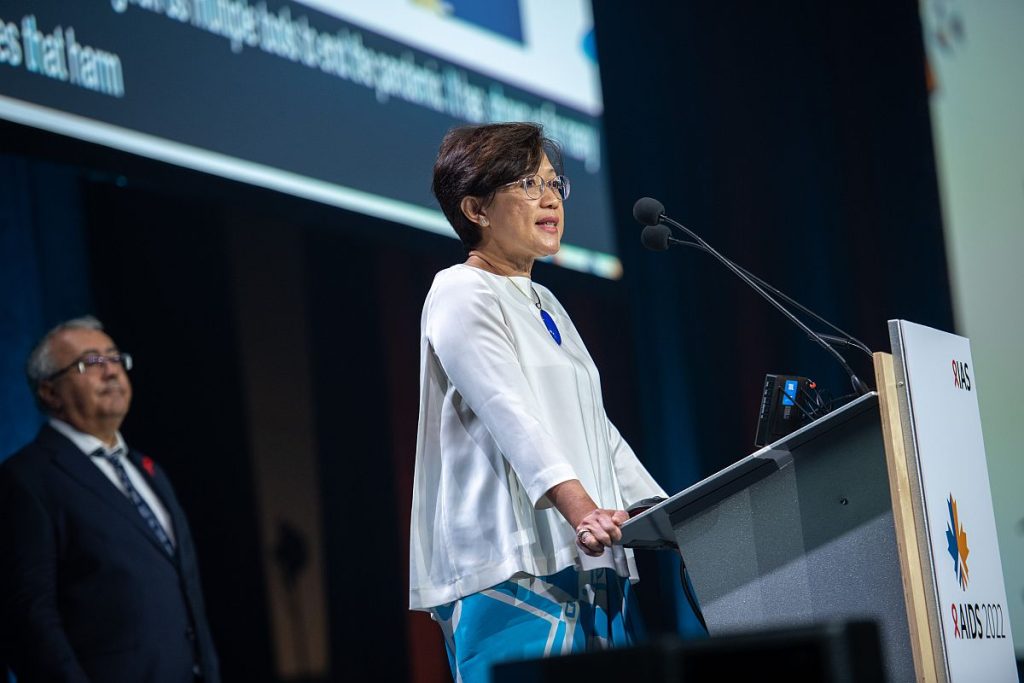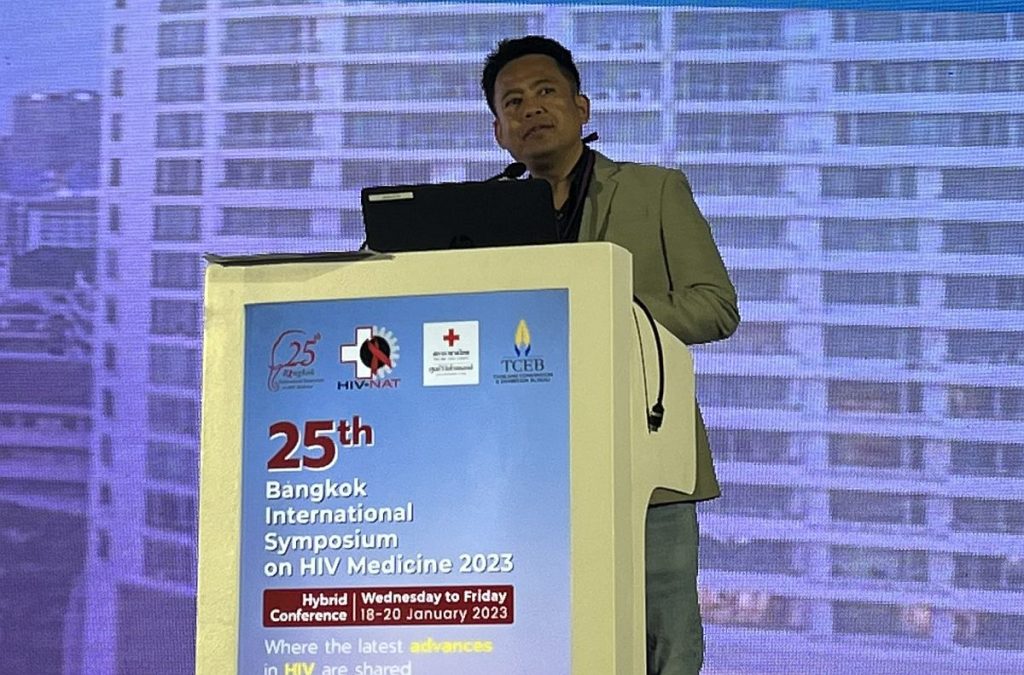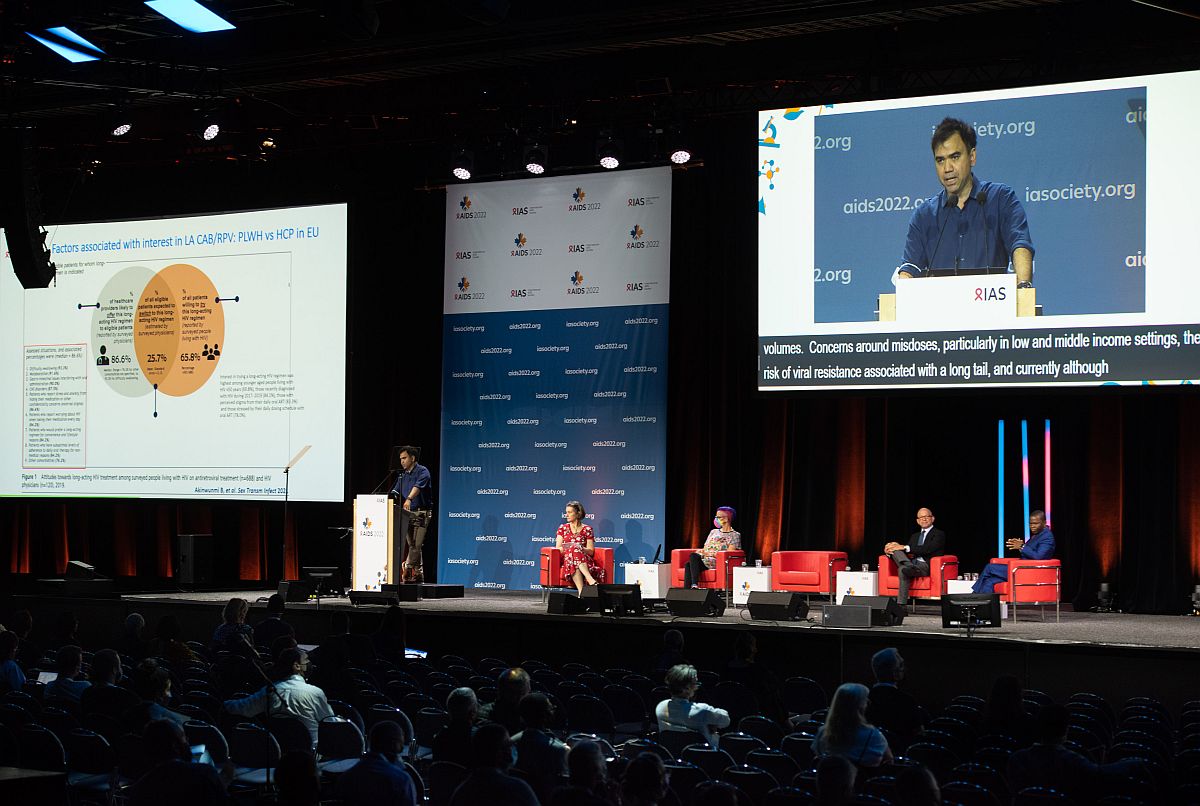KUALA LUMPUR, March 16 – As the cost of HIV medication remains high in Malaysia, experts are highlighting the potential for negotiation to bring down prices and improve access for patients.
Despite some progress made in improving access to newer and more tolerable HIV treatment, drugs like dolutegravir, a preferred first and second-line treatment by the World Health Organization (WHO), are still expensive and can place a heavy burden on government and individual budgets.
While the Ministry of Health (MOH) provides free first-line antiretroviral therapy (ART) to all Malaysian citizens living with HIV, charges at private hospitals and clinics are fully borne by the individual at the respective private rates.
Due to the current high cost of dolutegravir, first line treatment consists of older generation ART such as efavirenz-based regimens which have a higher toxicity profile.
Malaysian AIDS Council President Assoc Prof Dr Raja Iskandar Raja Azwa said there is “room to negotiate” with ViiV Healthcare and the Medicines Patent Pool (MPP) on royalty payments to improve pricing for the adult formulation of dolutegravir, which is estimated to be 17 times higher in Malaysia compared to Thailand due to undisclosed royalty rates in a licensing agreement signed in 2020.
“It has been suggested that there is room to get in touch directly with both, the CEO of ViiV, as well as the MPP, to make payment of royalties more transparent, and why the ultimate pricing was probably not as good as we had hoped and anticipated,” Dr Raja Iskandar told CodeBlue in an interview on January 25.
Pharmaceutical manufacturer ViiV Healthcare collaborated with the MPP in November 2020 to enable generic manufacturers to provide lower-cost versions of Tivicay, also known as dolutegravir, to Malaysia and three other upper-middle income countries.
The MPP is a public health group backed by the United Nations which negotiates with pharmaceutical companies for voluntary licences on priority drugs, including for HIV, to increase access.
This agreement followed protests from Malaysia, Azerbaijan, Belarus, and Kazakhstan, which were excluded from an earlier 2014 licensing arrangement that provided a royalty-free voluntary licence or a tiered royalty structure ranging from five to 10 percent, covering all least developed, low-income, lower-middle-income, and sub-Saharan Africa countries.
The deal made in 2014 covered both the single and fixed-dose combinations containing dolutegravir, and included both the adult and paediatric formulations of the drug.
Dolutegravir as a single formulation is a medication that contains only the antiretroviral drug dolutegravir, while TLD as a fixed-dose combination is a medication that contains three different antiretroviral drugs: tenofovir disoproxil fumarate (TDF), lamivudine, and dolutegravir. The three drugs in TLD work in different ways to suppress the replication of the HIV virus, making it a more comprehensive treatment regimen than a single dolutegravir.
In contrast to the 2014 agreement, the royalty rate in the Malaysia deal was undisclosed, a move that critics argue sets a “dangerous precedent” and goes against the MPP’s historical commitment to complete transparency of its licences.
Giten Khwairakpam, the Community and Policy Program Manager at amfAR’s TREAT Asia programme in Bangkok, Thailand, said some countries under the 2014 agreement are paying USD1.90 (RM8.50) per bottle of 30 tablets. Each tablet contains 50 milligrams of dolutegravir (single formulation). The price has since gone down to USD1.20 per bottle.
Thailand purchases, using a grant from the Global Fund, a 30-tablet bottle of dolutegravir at USD2.50 (RM11.30). The actual prices could differ slightly as there could be some additional freight cost, tax or insurance to be paid, Giten said.
For a fixed-dose combination of TDF, lamivudine, and dolutegravir (TLD), the cost is about USD3.90 per bottle. For paediatric formulations of the drug, the price is about USD4.50 per bottle containing 90 tablets, Giten told CodeBlue in the same interview.
“I’m suggesting that as part of that negotiation, if Malaysia is paying substantially higher compared to USD1.90, USD2.50, or USD3.90 for TLD fixed-dose combination, then that scope is there to negotiate to say okay, we’re paying substantially higher on the same product from the same manufacturing site from the same supplier but with a different voluntary licence.
“And why is it that we are paying this much higher – where is that scope for negotiation to ensure that we pay less and our coverage could be more so that it benefits both patients in Malaysia and the intended voluntary licence outcome to make sure that more patients are actually benefiting from this optimal regimen?” Giten said.
Giten highlighted the findings of a report by local non-profit organisation Third World Network (TWN) on Malaysia’s efforts to improve access to antiretroviral drugs, emphasising that as the cost of medication decreases, the number of patients receiving treatment increases.
The report pointed out that when generic drugs were utilised, the average monthly cost of treatment per patient under the MOH decreased significantly from USD315 to USD58, which represents an 81 per cent reduction. As a result, the number of patients who could receive treatment at government hospitals and clinics increased from 1,500 to 4,000.
amfAR, The Foundation for AIDS Research, is a non-profit organisation that leads global efforts in supporting AIDS research, providing HIV prevention and treatment education, and advocating for policies that fight against the spread of HIV.
TREAT Asia (Therapeutics Research, Education, and AIDS Training in Asia) is a network of research institutions, clinics, and hospitals that collaborate with civil society to ensure the safe and effective delivery of HIV/AIDS treatments across the Asia-Pacific region.
Planning Ahead For Access To Life-Saving Drugs

Prof Dr Adeeba Kamarulzaman, infectious disease physician and former president of the International AIDS Society (IAS), called for a new way of doing business by taking lessons from the Covid-19 response, which exposed “sheer injustice” in vaccine access.
Dr Adeeba also noted that as Malaysia climbs the economic ranks, it may no longer have access to certain privileges, making it crucial for the country to plan ahead.
“I think from my perspective, Giten raised a very good point that as we enter into the ranks of developed nations and may not be able to enjoy some of these concessions, it’s really important as a country to kind of see how we can prepare ourselves for the future.
“It’s not just HIV drugs. There’ll be many other new inventions, including vaccines.
“I think the bottom line is, as we become categorised as a developed nation, the government needs to allocate more on the health budget so that we are prepared for some of these changes, because right now, the percentage of the health budget, as a percentage of the overall budget is not reflective of other countries with the same level of income. And so that’s why we, as the end users, as doctors, feel the squeeze because the money is just simply not there, whether we pay for full price or a discounted price.
“And it will only get worse when we will not be able to enjoy some of these concessions, right,” Dr Adeeba said. “I think that the government needs to really, really commit to putting more into the health box, commensurate with the level of our development and income.”
Patient Groups Should Demand Lower Prices For Newer, Better Drugs

Giten said it is important for patient groups and civil society to know what is available beyond their local context. “They need to understand the global and regional trends, as well as what they should rightfully be getting.”
He said while it is the government’s duty, regardless of income level, and whether there is a donor or funding source, to provide healthcare, not just for HIV, but for multiple diseases, the government can only absorb so much.
“If Malaysia invests 50 per cent of its annual health budget on HIV alone, that won’t be feasible for the government. The idea is to help civil society and patient groups understand the situation and work with the authorities to make the best of what is available and prepare for what is in the pipeline,” Giten said.
Dr Raja Iskandar believes that there is a considerable opportunity for the HIV community in Malaysia to advocate for greater accessibility to newer HIV drugs.
“There is room for greater advocacy from the community themselves because what is different and great about working in HIV medicine is that even to these companies, the communities, they pride in, not only listening, responding, but including community voices in negotiations around availability and access to drugs.
“And so, I feel that the community of people living with HIV need to really speak up as well a bit more about access to newer drugs.
“Community voices have shaped the HIV response from the beginning of the HIV epidemic. In Malaysia, the community are grateful for access to free drugs by the MOH and there’s a reason for that, of course. The ministry does a very good job in providing first-line antiretroviral treatment for free but there needs to be a realisation that Malaysia is lagging behind provision of some of the newer ART treatments.
“For example and using Africa as a comparison, more than 75 per cent of Africa have transitioned to generic dolutegravir-based antiretroviral treatment regimens.
“But one has to understand that HIV treatment evolves over time, and it is the right of the community to have access to those better drugs over time,” Dr Raja Iskandar said.
“We need to position ourselves at a more regional and global level when we think of access to newer drugs, not just HIV drugs, and how we fare with other countries with a similar income level. We often restrict ourselves to a country perspective when we discuss medication access, not what is not accessible more regionally, what other patients are getting in other countries, comparatively.”
Long-Acting Cabotegravir: A Game-Changer In HIV Treatment
The HIV community can also look forward to new medicines such as the long-acting cabotegravir which has the potential to improve adherence to HIV prevention and treatment regimens, as it eliminates the need for daily pill-taking.
In an announcement last year, ViiV Healthcare agreed to provide access to affordable generic versions of its long-acting cabotegravir, Apretude, in 90 countries categorised as least developed, low-income, and lower-middle-income, where over 70 per cent of all new HIV infections occurred in 2020.
The 90 countries include six ASEAN countries: Cambodia, Indonesia, Laos, the Philippines, Myanmar, and Vietnam. As an upper-middle income country, Malaysia is again not included as part of the territory in this licence.
CodeBlue previously reported that Malaysia will likely have access to generic versions of long-acting cabotegravir in 2027, at the earliest, when the patent is expected to end, along with other second-tier countries.
The promise of long-acting HIV treatment is exciting, but Dr Raja Iskandar said clinicians may have a hard time fully embracing it given the current barriers to access.
“Although we don’t anticipate seeing generic versions of long acting cabotegravir soon, I understand GSK has already submitted the dossier for the originator formulation for approval with the National Pharmaceutical Regulatory Agency (NPRA).But it’s certainly something to be very excited about. It has revolutionised HIV treatment, and all HIV treatment is moving towards long-acting options.
“We’re moving away from daily pills and towards less frequent regimens. It’s very exciting because HIV treatment is moving towards an area that has already set a precedent, for example, with contraception,” Dr Raja Iskandar said.
“I think we need to do a bit more work with the current licensing agreement and see if there is room for further negotiation, specifically with regards to dolutegravir, as this sets a precedent. It’s important to establish these precedents correctly in a timely manner so that when long-acting cabotegravir becomes accessible, we can hopefully get the best possible deals.”








